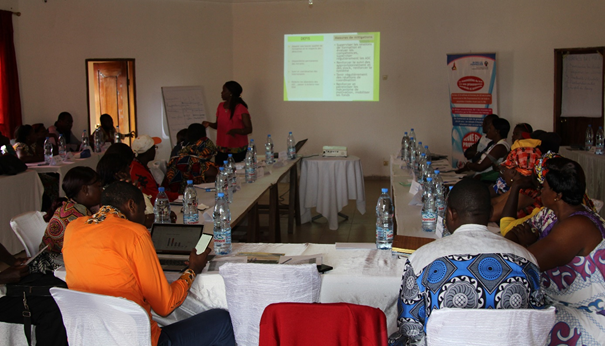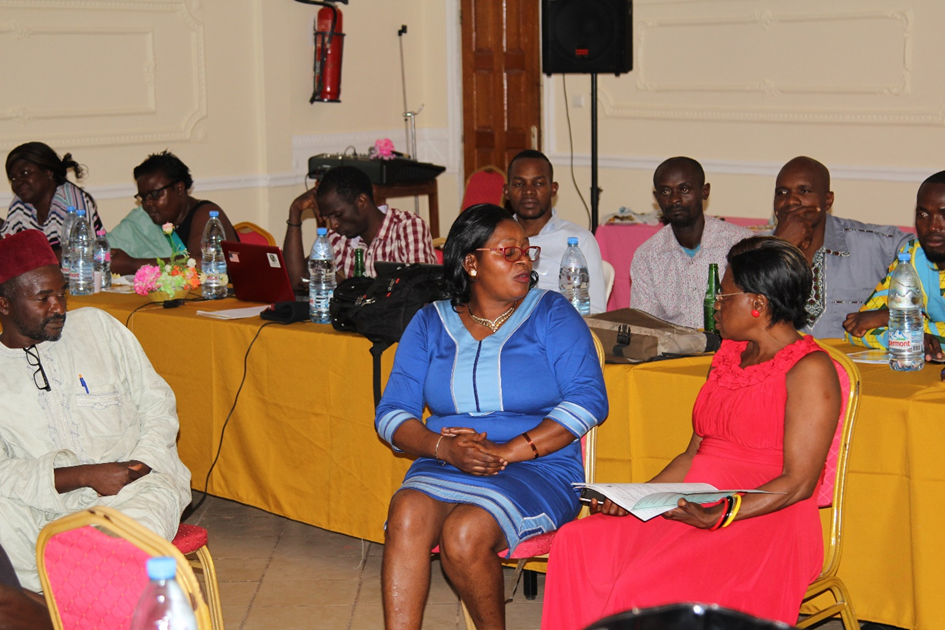113 community Health workers in Cameroon acquired skills to improve retention of women living with HIV and GBV prevention
Date:

113 district and community health workers in Bertuoa and Bafia have been trained on the active research of women living with HIV and the prevention of gender-based violence during two capacity building workshops organized by the National Aids Control Committee (CNLS) and UN Women. The main objective of the workshops organized in July 2019 in Bertuoa and Bafia respectively was to improve the retention of women living with HIV without exposing their children in order to reduces mother-to-child transmission of HIV in health districts.
These trainings have equipped the health workers with skills on research and data collection tools relative to active research techniques within community of women and children living with HIV. Gender and HIV experts also drilled the health workers on techniques to search for HIV+ women absent for follow-up during the post-natal consultation, as well as on gender-sensitive research and Communication within the community.

Participants expressed their satisfaction on the skills acquired during the training. According to NTSONG Brigitte, one of the community health workers appreciated the training “these new skills on gender and HIV will allow us to better take into account the sensitivity and specificity of our community members to raise their awareness.”
Beyond the versatility of community health workers in different activities for several sectors such as malaria and tuberculosis, the skills acquired during the capacity building workshops is an additional useful skill. The participants acknowledged that the skills will be useful to provide an adequate response towards overcoming low coverage in prenatal consultations, low retention of pregnant women initiated with antiretroviral treatment and low return to postal consultation of children exposed children exposed to HIV.